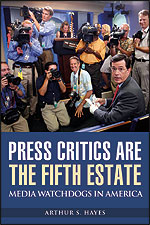 New York Times public editor Clark Hoyt today largely absolves columnist Maureen Dowd, writing, “I do not think Dowd plagiarized, but I also do not think what she did was right.”
New York Times public editor Clark Hoyt today largely absolves columnist Maureen Dowd, writing, “I do not think Dowd plagiarized, but I also do not think what she did was right.”
Over the past week, I’ve thought a lot about plagiarism in the context of teaching journalism students. So it’s relevant to point out that, at Northeastern, we define plagiarism as “intentionally representing the words, ideas, or data of another as one’s own … without providing proper citation.” Based on what we now know, I sort of agree and sort of disagree that Dowd did not plagiarize. And I definitely agree that what she did wasn’t right.
When the news broke that Dowd had copied more than 40 words from Josh Marshall’s Talking Points Memo without quotation marks and without attribution, my first thought was that bloggers would pore over everything Dowd had written to see if they could find other examples. Well, it’s been a week, and the Marshall incident still stands alone. I don’t think it’s plausible that Dowd would suddenly start plagiarizing at the age of 57. So not only is this a first-time offense, but it speaks, I think, to a lack of malice aforethought on her part.
Earlier in the week, I and other commentators wrote that we had a hard time believing Dowd could be telling the truth when she said she had somehow managed to insert Marshall’s words, almost verbatim, based on a casual conversation she’d had with a friend. She has now clarified that, telling Hoyt she’d exchanged e-mails with a friend — still unnamed — and then copied and pasted his or her thoughts from the e-mail into her column.
That is a pretty lame way to write a column, and as Hoyt says, readers have a right to expect that a columnist, as opposed to a news reporter, will use her own words except when quoting others. Dowd’s editor, Andrew Rosenthal, disagrees.
Now, this may surprise readers who’ve never worked in a newsroom, but Rosenthal’s take is pretty much in sync with the way journalists work. As an editor, I have written whole paragraphs into opinion pieces by people with well-known bylines. As a writer, I’ve had editors do the same with me. But it’s one thing to acknowledge that journalism is a collaborative process; it’s another to have friends help you write your column, and then turn it in to your editors without telling them.
If intentional theft is at the heart of plagiarism, then Dowd didn’t plagiarize Marshall. But she did plagiarize her friend, even if she did it with that friend’s acquiescence. And though she may never have lifted someone’s published words before last week, it could well be that she frequently cobbles together e-mails from friends in the course of writing — assembling? — her column.
At Media Matters, Eric Boehlert calls on the Times to produce the e-mail. At Scripting News, Dave Winer offers a similar view. My own take at this point is that Dowd not only owes us a fuller explanation, but she also owes her readers an apology. A brief suspension wouldn’t be out of order, either. It’s not a matter of wrecking her career; it’s a matter of basic accountability.
By far the most logical explanation would be that Dowd copied and pasted the Marshall passage herself with the intention of crediting him, and then forgot to do so. We could all understand that. Because she has given us something so much less straightforward, and because we still don’t know everything, I wonder if something else is going on.
At the Nytpicker, Amy Alkon asks something I’ve been wondering myself. Is it possible that an assistant did most of the work, including grabbing the Marshall quote without attribution, and that Dowd is now covering for both the assistant and herself? Normally I don’t like engaging in such speculation. But given the lack of transparency on the part of Dowd and her editors, I see no reason why we can’t offer some educated guesses.
Unfortunately, Dowd had the day off today. She should be writing her next column for Wednesday’s paper. I’ll extend to her the same invitation she received from Slate’s Jack Shafer last week: She should use her column to tell us what happened, how it happened and what she’s learned from the experience.
The standards to which she is held ought to be at least as high as those expected of any college sophomore.
Photo of Maureen Dowd (cc) by Matthew and Peter Slutsky and republished here under a Creative Commons license. Some rights reserved.
 This is a mistake that comes up over and over, and today’s offender is the Boston Globe. The headline on an editorial about the Mike Daisey/“This American Life” debacle reads “NPR: Exposing Apple’s worm, and its own.”
This is a mistake that comes up over and over, and today’s offender is the Boston Globe. The headline on an editorial about the Mike Daisey/“This American Life” debacle reads “NPR: Exposing Apple’s worm, and its own.”

 I’ve got an
I’ve got an 